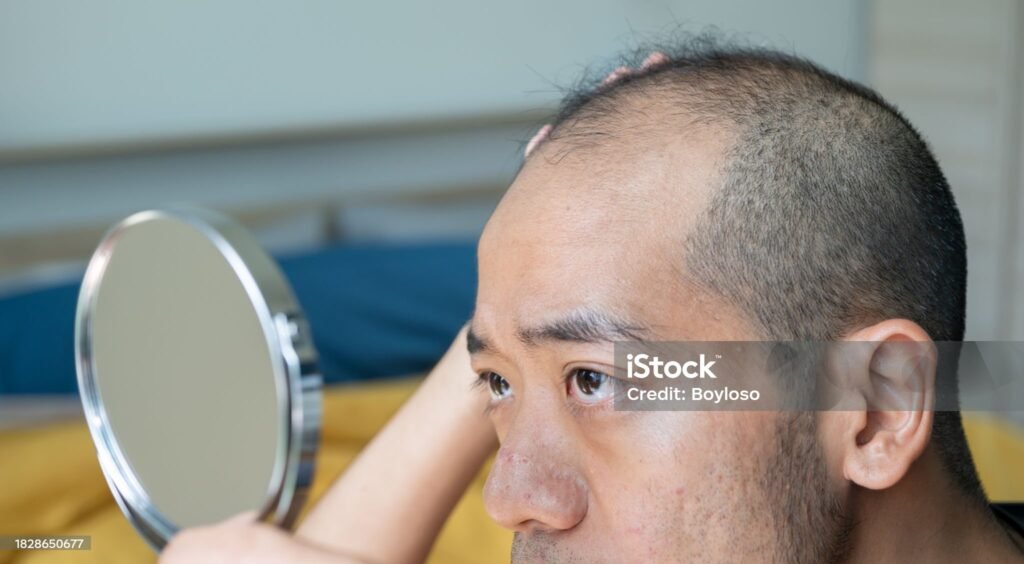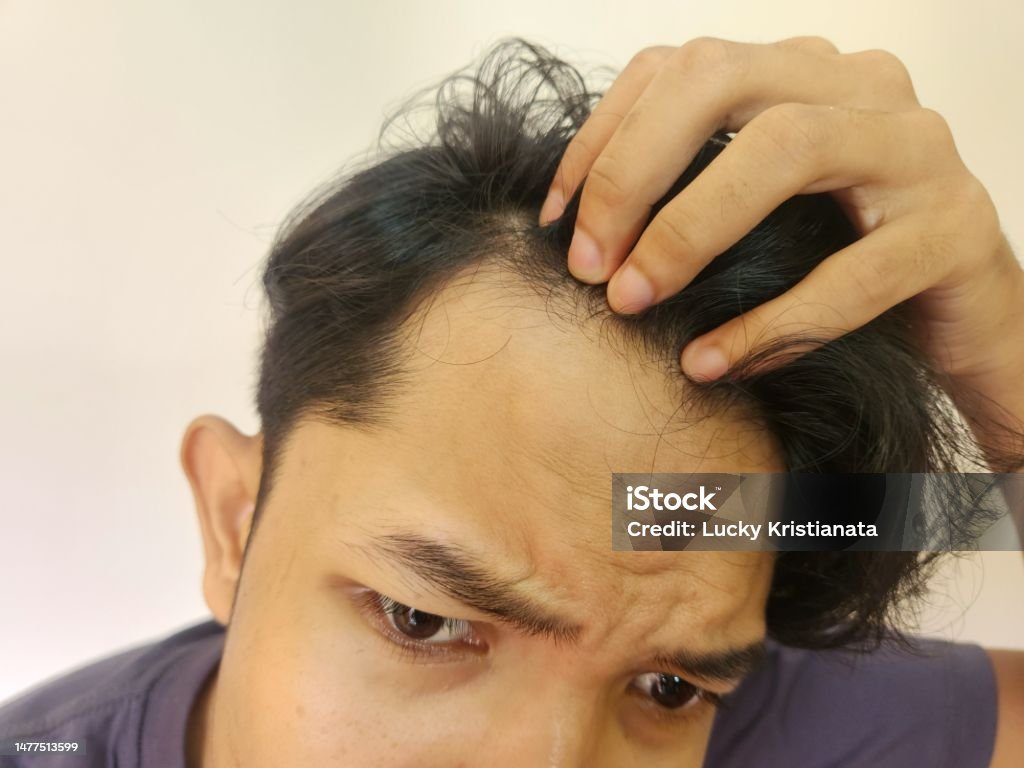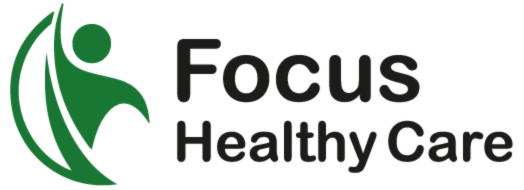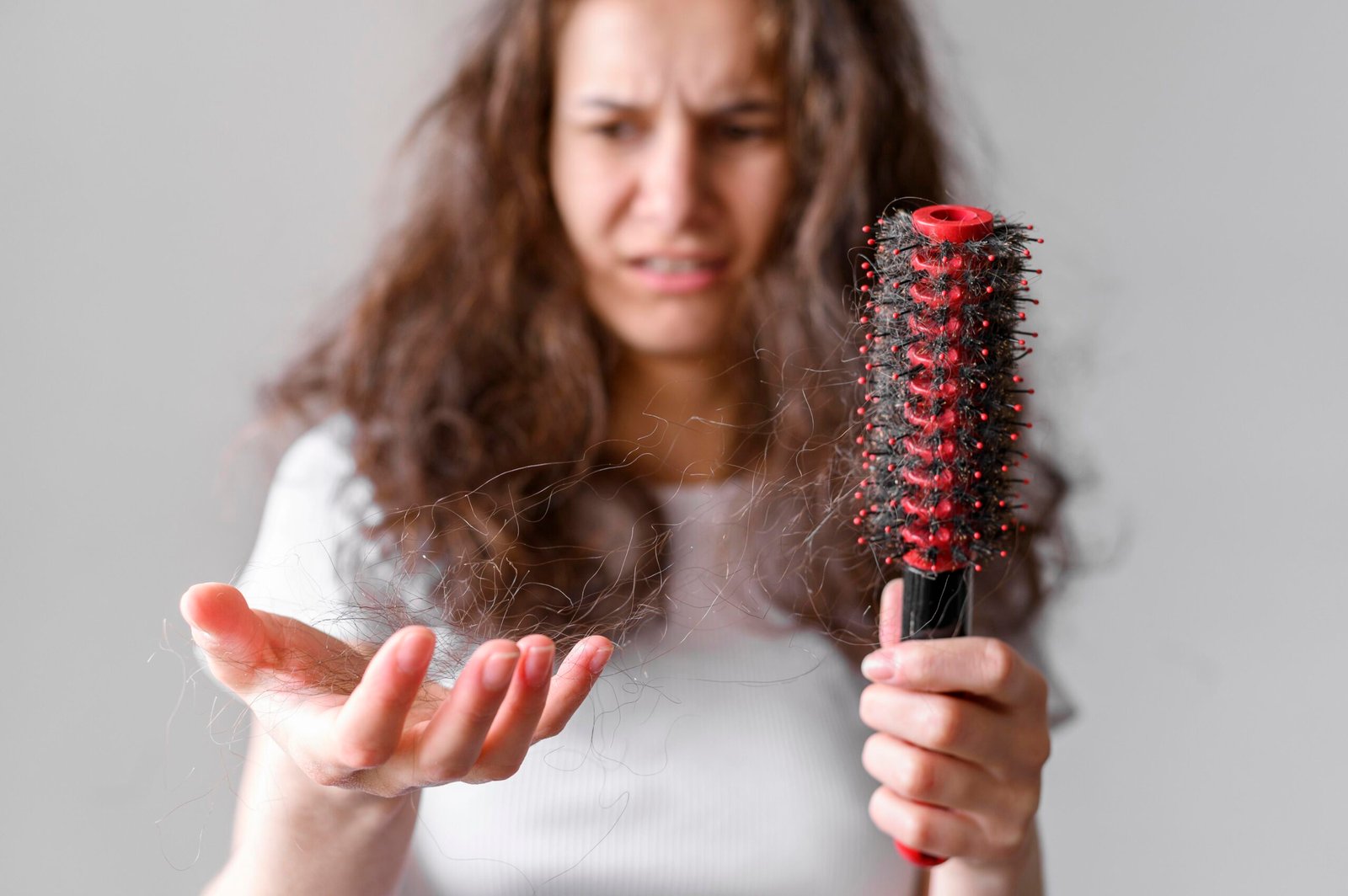On the other hand stress prevailed as destiny in 21st century world, it not only influence mind but also lead to health consequences. Sure, we also know by now how stress is damaging our minds and has the literal power to snap a hair off if necessary — but that just fucking sucks for your strands. Hair Loss THE RELATIONSHIP BETWEEN STRESS AND HAIR LOSSCrazy falling hairs one after the other are a sad picture of what stress hair loss can do to you, leaving your head looking like patches of grass or completely bald. In this ultimate guide, I am going to reveal to you some stress and hair loss connection so that it will help YOU become more prepared in dealing with the stresses of life than ever.
How Stress-Induced Hair Loss Affects You

While it is surely be a more complex relationship, we cannot deny that stress and hair fall do have significance with each other. While stress by itself may not actively create hair loss for everyone, it aggravates all types of hair loss. This is how stress affects hair fall:
1. Telogen Effluvium: A Common Type of Stress-Induced Hair Loss
The most common form of stress-induced hair loss is telogen effluvium. Event of stress causes the hair follicles to pass into a telogen-phase, or resting phase even before its expected period. This in turn leads to more than normal hair shedding. Perhaps even more importantly, due to the fact that it seems a few months after this event and highlights the delayed influence of stress on our hair.
2. Alopecia Areata: How Stress Can Trigger Hair Loss
In the same way, alopecia areata is one of sudden and patchy hair loss attributed to stress as well. While it is not entirely certain what causes alopecia areata, stress may act to trigger or worsen the autoimmune response against hair follicles. This type of hair loss may be relieved or stopped with more effective stress management.
3. Trichotillomania: Stress and Compulsive Hair Pulling
Trichotillomania, a condition marked by an irresistible urge to pull out hair, can be exacerbated by stress. This compulsive behavior often surfaces as a coping mechanism for stress or anxiety. When stress levels rise, individuals with trichotillomania may experience heightened urges, leading to increased hair loss and damage.
Understanding the link between hair loss and stress can help in addressing the issue more effectively. Managing stress is crucial in mitigating its adverse effects on hair health.
Mechanism of Stress-Induced Hair Fall:
The connection between stress and hair fall is rooted in the body’s physiological response to stressors. When faced with stress, the body releases hormones such as cortisol and adrenaline as part of the “fight or flight” response. Elevated cortisol levels can disrupt several bodily functions, including the hair growth cycle. Specifically, cortisol shortens the growth phase of hair follicles (anagen phase), pushing them prematurely into the resting phase (telogen phase). This disruption results in increased hair shedding and, eventually, hair loss.
Understanding how stress impacts hair health highlights the importance of managing stress to maintain a healthy hair growth cycle.
Chronic Stress vs. Acute Stress: Effects on Hair Loss
Understanding the difference between chronic and acute stress is crucial for managing hair health. Acute stress, such as a tight work deadline or sudden life event, typically leads to temporary hair shedding. In contrast, chronic stress—stemming from ongoing issues like persistent work pressures or relationship troubles—can have more lasting effects. Chronic stress disrupts the hair growth cycle over an extended period, increasing the risk of continuous hair loss.
Although stress alone may not directly cause hair loss in everyone, it significantly contributes to various hair loss conditions and worsens existing problems. Recognizing the impact of stress on hair health is essential for effective management. By reducing stress through lifestyle changes, adopting healthy habits, and seeking support, individuals can minimize stress-related hair fall and support healthier hair growth.
See also: Hair Loss: Genetics, Causes, Symptoms & Effective Treatments
Symptoms of Hair Loss Due to Stress:

Identifying symptoms of hair loss and stress is crucial for timely intervention. Stress can significantly impact stress and hair health, leading to various signs of hair loss. Here’s how to recognize the key symptoms:
1. Increased Hair Shedding
Firstly, one of the main signs of hair loss and stress is increased hair shedding. You might notice more hair falling out than usual during activities like showering, brushing, or styling. While some shedding is normal, excessive hair loss during stressful periods often indicates a disruption in the hair growth cycle.
2. Thinning Hair: The Role of Stress in Hair Loss
Moreover, stress and hair health can lead to overall thinning, particularly in areas affected by stress. You may see thinning along the parting line, crown, or other concentrated regions. Over time, this can result in noticeable reductions in hair density and volume.
3. Formation of Bald Patches: Stress and Its Impact
In addition, hair loss and stress might cause bald patches on the scalp. These patches often appear suddenly with well-defined borders and are commonly associated with conditions like alopecia areata, where stress acts as a known trigger.
4.Changes in Hair Texture: How Stress Affects Hair Quality
Furthermore, stress can alter your hair’s texture and quality. For instance, you might experience dryness, brittleness, or increased fragility. Such changes compromise the hair’s structural integrity, making it more prone to breakage and split ends. This impact on stress and hair health reflects how stress-induced damage affects your hair.
5. Scalp Sensitivity from Stress-Induced Hair Loss
Additionally, hair loss and stress might come with scalp sensitivity or irritation. You could experience symptoms such as itching, redness, or tenderness in areas with hair loss. These symptoms often result from inflammation or a disruption in the scalp’s natural balance due to stress.
6. Psychological Impact of Hair Loss and Stress
Moreover, the psychological effects of stress and hair health are significant. Visible changes in hair density can impact confidence and self-esteem, increasing feelings of self-consciousness or anxiety.
7. Delayed Onset
Finally, note that hair loss and stress might not manifest immediately. Symptoms often appear several months after a stressful event due to the hair growth cycle’s delay. This delay can make it challenging to link hair loss with past stress.
Recognizing these symptoms is the first step toward managing stress and hair health effectively. If you experience any of these signs, consult a healthcare professional or dermatologist. By addressing stress, adopting healthy habits, and seeking appropriate treatment, you can restore your hair’s health and vitality.
See also: Foods for Hair Growth: 12 Top Foods for Stronger, Healthier Hair
How to Manage Hair Loss and Stress Effectively:

Experiencing hair fall due to stress can be distressing, but taking proactive steps can help manage stress and promote healthy hair growth. Here’s a comprehensive guide on how to control hair fall and stress:
1. Practice Stress Management Techniques
Meditation and Mindfulness: Integrate regular meditation or mindfulness practices into your routine to promote relaxation and reduce stress levels. Even a few minutes of deep breathing or guided meditation can lower cortisol levels, benefiting both your mental well-being and stress and hair health.
Yoga or Tai Chi: Engage in gentle activities like yoga or tai chi, which combine movement, breathwork, and mindfulness. These practices relieve stress and improve circulation to the scalp, supporting healthy hair growth.
Journaling: Reflect on your thoughts and emotions by journaling regularly. Writing down your feelings helps process stressors more effectively and reduces their impact on your hair and overall health.
2. Prioritize Self-Care
Healthy Diet: Eat a balanced diet rich in essential nutrients, including vitamins, minerals, and proteins. Foods like leafy greens, lean proteins, nuts, seeds, and fruits nourish hair follicles and help minimize hair fall.
Regular Exercise: Stay active with regular exercise such as walking, jogging, swimming, or cycling. Exercise reduces stress hormones like cortisol and boosts blood circulation, delivering vital nutrients to the scalp and supporting healthy hair growth.
Adequate Sleep: Ensure quality sleep by maintaining a consistent sleep schedule and a relaxing bedtime routine. Aim for 7-9 hours of uninterrupted sleep each night to rest and rejuvenate your body and mind, which promotes optimal hair health.
3. Adopt Healthy Lifestyle Habits
Limit Caffeine and Alcohol: Cut back on caffeinated beverages and alcohol, as they can exacerbate stress and disrupt sleep patterns, contributing to hair fall. Opt for herbal teas or water to support overall well-being.
Quit Smoking: If you smoke, consider quitting. Smoking impairs circulation to the scalp and can lead to hair loss. Seek support from healthcare professionals or cessation programs to improve your hair and overall health.
Manage Time Effectively: Organize your daily schedule and prioritize tasks to alleviate feelings of overwhelm. Break larger tasks into manageable steps and delegate responsibilities when possible to create a balanced lifestyle.
4. Seek Professional Help
Consult a Healthcare Provider: If you experience significant hair fall or struggle with stress, consult a healthcare provider or dermatologist. They can assess your hair and scalp health, identify underlying causes, and recommend treatments such as topical solutions, supplements, or lifestyle changes.
Therapy or Counseling: Consider therapy or counseling to address underlying stressors and develop coping strategies. Cognitive-behavioral therapy (CBT), mindfulness-based stress reduction (MBSR), or other therapeutic approaches can help manage stress and its impact on your hair.
5. Practice Gentle Hair Care
Use Mild Products: Choose gentle shampoos and conditioners formulated for your hair type to minimize irritation and damage. Avoid harsh chemicals, sulfates, and alcohol-based products that can strip hair of natural oils and contribute to hair fall.
Limit Heat Styling: Reduce the use of heat styling tools like flat irons, curling irons, and blow dryers. Excessive heat can weaken hair shafts and cause breakage. Opt for air-drying or use heat-protectant products to minimize damage.
Handle Hair with Care: Be gentle when detangling or styling your hair to prevent breakage. Use wide-toothed combs or brushes designed for detangling, and avoid tight hairstyles that can stress hair follicles and contribute to hair fall.
By implementing these strategies and prioritizing self-care, stress management, and healthy lifestyle habits, you can effectively control hair fall and stress. Remember to be patient and consistent, as hair growth is a gradual process. With dedication and perseverance, you can restore your hair’s health and enjoy renewed confidence and well-being.
See also: The Link Between Stress and Sexual Health: Tips for Management
Final Thoughts:
In closing, do not forget how strong the connection exists between stress and hair loss, health in general. Your hair is one of the first things to show how you are taking care of yourself — both inside and out. Stress management does more than improve your hair health, it also promotes an all-around well being.
If you have any suggestion for stress and hair health, then it depends on individual to person. No, instead find that which works best for you. It could be meditation and yoga, or it might simply mean incorporating an exercise routine into your everyday life through walking more, lifting weights multiple times a week or participating in creative activities. Being around family or friends is also a good way to relax. It is important to do this on a regular basis, and not after the situation arises in which you need stress relief.
Healthy hair does come by with a small amount of effort. The time you invest in managing hair loss and stress will pay off. Stick to stress-free lifestyle and a healthy life; you will see improvements in the condition of your hair as well.
So in short, face off your inner peace and strength,commemorate it on the outside with you hair. Regular exercise and taking some time off to breathe also works wonders in keeping your precious hair robust again, this will make you feel good overall. Thank you for watching and we hope your hair reflects that peace and strength from deep inside.
Referance
Mayo Clinic – Stress and Hair Loss
Mayo Clinic offers an overview of hair loss symptoms and potential causes, including stress.
National Institute of Mental Health (NIMH) – Stress Management:
NIMH – Stress Mhttps://www.nimh.nih.gov/health/publications/so-stressed-out-fact-sheetanagement
This resource discusses coping strategies for stress, which can be helpful for managing stress-induced hair loss.
WebMD – Hair Loss
WebMD provides insights into how stress can lead to hair loss and tips for managing it.
Healthline – Manage Stress
Healthline offers practical tips for managing stress, which can help with stress-related hair loss.

